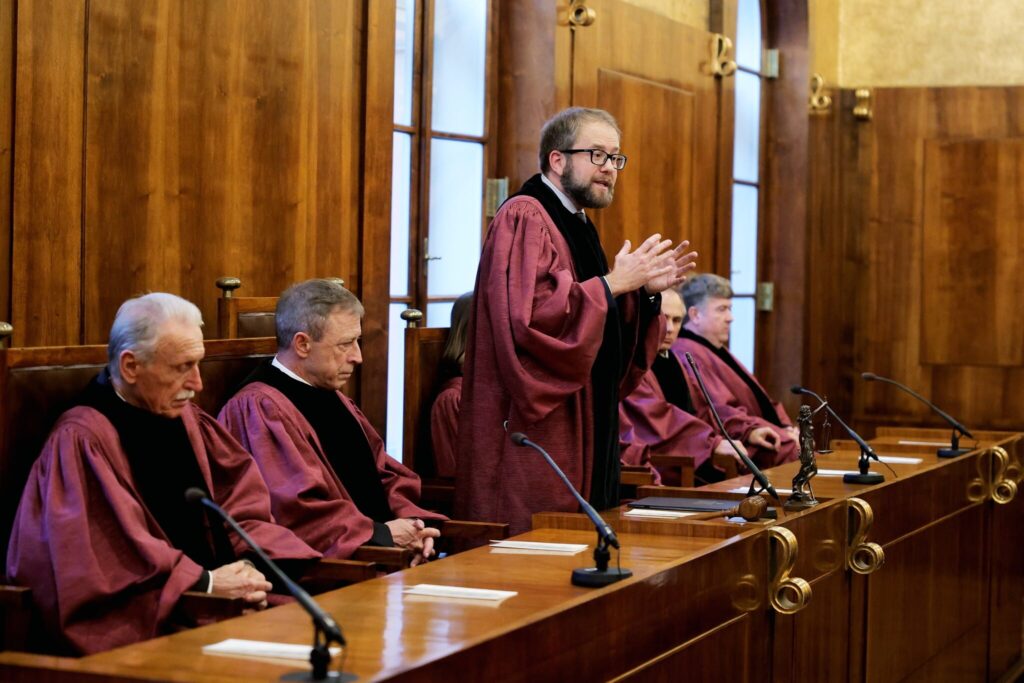The Constitutional Court, which also had the constitutional petition on the amendment to the Radio Television Slovenia (RTVS) Act with Peter Gregorčič – the chairman of the Programme Council of the national media outlet, as a first signatory – on the agenda at Thursday’s session, has still not adopted a decision in this case, the Court informed the Slovenian Press Agency.
The Constitutional Court has been deciding on the constitutional petition on the amendment to the Radio-Television Slovenia Act for three months now, but it has still not made a final decision. In February, the Court suspended the implementation of part of Article 23 of the amendment to the RTVS Act, according to which the council of the institution is to be constituted no later than 60 days after the amendment, which entered into force on the 28th of December last year. In addition, the Court completely suspended the implementation of Articles 24 and 25, which require the Management Board of RTV to adopt new statutes within six months of its constitution, to publish a public call for tenders for the election of the President and members of the Management Board within 15 days of its constitution, and the voting procedures for the President and each member of the Management Board.
Since the filing of the constitutional petition, the Constitutional Court Judges have been under enormous pressure from the forces of the transitional left, who are trying to get the judges to make an unconstitutional decision and lift the suspension, which would allow the left to attack and take over the national media outlet – RTV.
Law as a political tool of the left elite
That RTV will soon be in the “right hands” was recently announced at Orle by Ljubljana Mayor Zoran Janković, while constitutional lawyer and last head of the Central Committee of the Union of Communists of Slovenia, Ciril Ribičič, invented a legal bypass with a decision that would lift the suspension of the part of the amendment to the law that prevents the left from taking over RTV.
However, as we have already pointed out, any such decision would almost certainly result in a slap on the wrist by the European Court of Human Rights.
Sara Kovač


